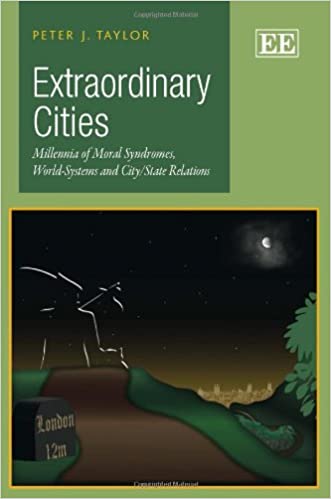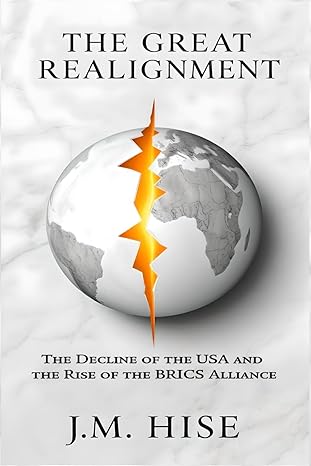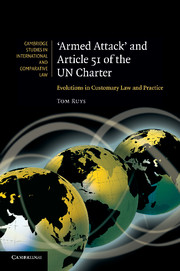'Peter J. Taylor has produced a sweeping, empirically grounded, defense of cities as fundamental building blocks of long-term, large scale social structures; a way of freeing social science from state-centric bias; and indeed, mankind's hope. However, the single greatest strength of this complex, seductive, argument is the insistence on treating cities relationally, as process. Here the key to understanding the significance of cities is by studying them in terms of the dynamic networks they form and in their relations to states.'
- Richard E. Lee, Binghamton University, US
Accepting that cities are extraordinary, this book provides an original city-centred narrative of human creativity, past, present and future.
In this innovative, ambitious and wide-ranging book, Peter Taylor demonstrates that cities are the epicenters of human advancement. In exploring cities as sites through which economies flourish, by harnessing the creative potential of myriad communication networks, the author considers cities from varying temporal and spatial perspectives. Four stories of cities are told: the origins of city networks; the domination of cities by world-empires; the genesis of a singular modern creative interval in which innovation culminates in today s globalised cities; and finally, the need for cities to act as centres for human creativity to produce a more resilient global society in the current crisis century.
Providing a long-term view through which to consider the role of cities in attending to incipient crises of the twenty-first century, this closely argued thesis will prove essential for students and scholars of urban studies, geography and sociology, and all those with a professional interest in, or personal fascination for, cities.
Contents: Preface Part I: Setting Down and Setting Up 1. A Cities' Perspective 2. Conceptual Toolkits Part II: Narrative I: Beginning Conjectures 3. City and State Beginnings: Western Asia's Great Creative Interlude 4. Geographies of Beginning Creative Interludes Part III: Narrative II: World-systems 5. Normal History 6. Making the Modern World-system: Western Europe's Great Creative Interlude Part IV: Narrative III: Prospective Conjectures - Where Are We and Where Are We Going? 7. Working in an Urban World 8. Towards Green Networks of Cities for the Twenty-first Century References Index
چکیده فارسی
پیتر جی. تیلور دفاعی گسترده و تجربی از شهرها بهعنوان بلوکهای اساسی ساختارهای اجتماعی بلندمدت و در مقیاس بزرگ ایجاد کرده است. راهی برای رهایی علوم اجتماعی از تعصب دولت محور. و در واقع، امید بشر. با این حال، بزرگترین نقطه قوت این استدلال پیچیده و فریبنده، اصرار بر برخورد رابطه ای با شهرها، به عنوان فرآیند است. در اینجا کلید درک اهمیت شهرها، مطالعه آنها از نظر شبکه های پویایی است که آنها تشکیل می دهند و در روابط آنها با دولت ها.'
- ریچارد ای. لی، دانشگاه بینگهامتون، ایالات متحده
با پذیرش خارقالعاده بودن شهرها، این کتاب روایتی اصیل شهر محور از خلاقیت انسان، گذشته، حال و آینده ارائه میکند.
در این کتاب نوآورانه، جاه طلبانه و گسترده، پیتر تیلور نشان می دهد که شهرها کانون پیشرفت بشر هستند. نویسنده در کاوش شهرها به عنوان مکان هایی که از طریق آنها اقتصادها شکوفا می شود، با بهره گیری از پتانسیل خلاقانه شبکه های ارتباطی بی شمار، شهرها را از دیدگاه های زمانی و مکانی متفاوت در نظر می گیرد. چهار داستان از شهرها گفته می شود: خاستگاه شبکه های شهری. تسلط امپراتوری های جهانی بر شهرها؛ پیدایش یک بازه خلاق مدرن منحصر به فرد که در آن نوآوری در شهرهای جهانی شده امروزی به اوج خود می رسد. و در نهایت، نیاز شهرها به عنوان مراکزی برای خلاقیت انسانی برای ایجاد جامعه جهانی انعطافپذیرتر در قرن بحران کنونی.
با ارائه دیدگاهی بلندمدت که از طریق آن به نقش شهرها در مواجهه با بحران های اولیه قرن بیست و یکم توجه شود، این پایان نامه کاملاً استدلال شده برای دانشجویان و دانش پژوهان مطالعات شهری، جغرافیا و جامعه شناسی و همه ضروری خواهد بود. کسانی که علاقه حرفه ای به شهرها دارند یا شیفتگی شخصی برای آنها دارند.
محتوا: پیشگفتار قسمت اول: راه اندازی و راه اندازی 1. دیدگاه شهرها 2. ابزارهای مفهومی قسمت دوم: روایت اول: حدس و گمان های آغازین 3. آغاز شهر و ایالت: خلاقیت بزرگ آسیای غربی میانآهنگ 4. جغرافیای آغاز میانآهنگهای خلاقانه بخش سوم: روایت دوم: نظامهای جهانی 5. تاریخ عادی 6. ساختن سیستم جهان مدرن: میانآهنگ خلاقانه بزرگ اروپای غربی قسمت چهارم: روایت سوم: حدسهای احتمالی - ما کجا هستیم و کجا هستیم ما میریم؟ 7. کار در دنیای شهری 8. به سوی شبکه های سبز شهرها برای قرن بیست و یکم فهرست منابع
ادامه ...
بستن ...










